‘Always a potential risk’: All of the security measures Coles, Woolworths introduced in 2023
In 2023, Australia’s two biggest supermarkets went to increasingly drastic lengths to combat what has become an estimated $9 billion-a-year problem.
Gone are the days when the most retailers did to ward off stealing was to warn customers, via prominently-placed signage, that they were committing “a crime”.
In 2023, Australia’s two biggest supermarkets, Coles and Woolworths, went to increasingly drastic lengths to combat what has become an estimated $9 billion-a-year problem.
After a pandemic-induced lull, retail theft has surged both at home and abroad. Comparison website Finder found in October that Australians are stealing from shops, service stations and cafes in record numbers – proof, Finder money expert Sarah Megginson said at the time, that households are at “breaking point”.
“The research really shows just how much people are struggling and turning to things that they probably never could have imagined in the past,” Ms Megginson said.
Monash University, meanwhile, asked shoppers in September to rate the justifiability of a range of behaviours given the current economic conditions – and found that more than a quarter of consumers believed that blatant forms of retail theft were “a little” to “completely” justifiable.
Specifically, “taking an item without paying” was perceived as “a little to completely” justifiable for 28 per cent of shoppers, followed by “changing price tags on products” (30 per cent), “not scanning some items when using a self-checkout terminal (32 per cent), and “scanning items as cheaper items when using a self-checkout terminal” (37 per cent).
In a bid to protect the bottom line – and stamp out violent behaviour inflicted upon staff by a minority of customers, both Coles and Woolworths have therefore deployed a number of new tactics over the last 12 months.
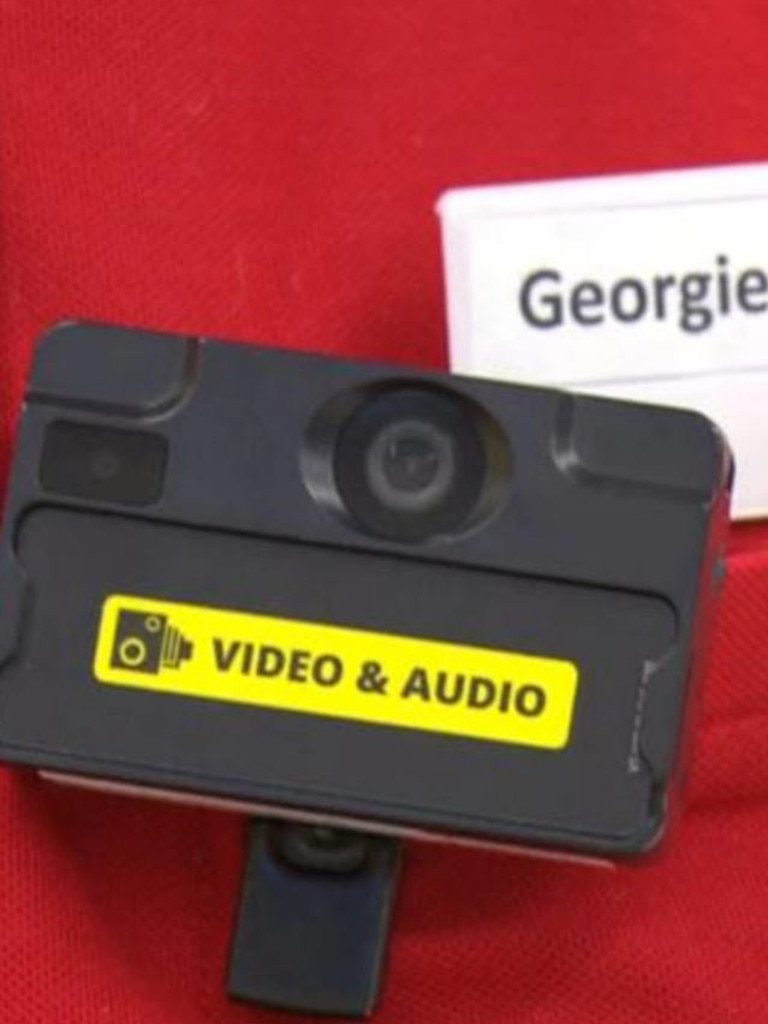
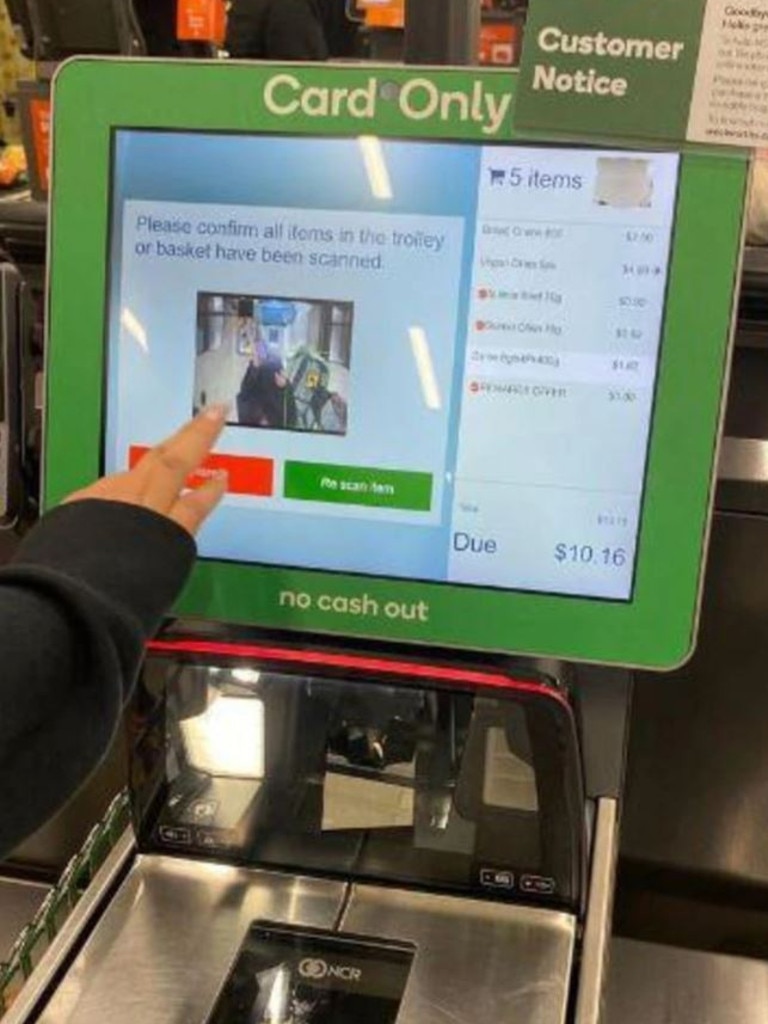
A Coles spokesperson told news.com.au that “while most of our customers do the right thing, unfortunately a small number don’t”.
“Coles has a range of security measures in place to reduce theft from our stores including CCTV, electronic article surveillance (EAS), and in some stores new smart gate technology that automatically opens as customers make payments for their products,” the spokesperson said.
“Additionally, trolley lock technology has been in place at a number of our stores in recent years and this technology uses sensors to prevent trolleys leaving the store if someone hasn’t first paid at a register.”
After a successful trial, in September the grocery giant also rolled out body-worn cameras at 30 of its most high-risk stores across Victoria, Western Australia, Queensland and South Australia.
Similar to those used by police or bounders, the miniature cameras can record and send live footage back to management when needed. Extending the use of this technology to retail staff, Coles said at the time, will help keep them safe and help deter thieves.
“Body-worn cameras only record once activated. If a team member feels unsafe in a situation, they can turn on their body camera and will inform the customer that they are turning it on for safety,” a spokesperson explained.
“This trial has been well received by team members who feel that the technology would benefit them if faced with a threatening situation.”
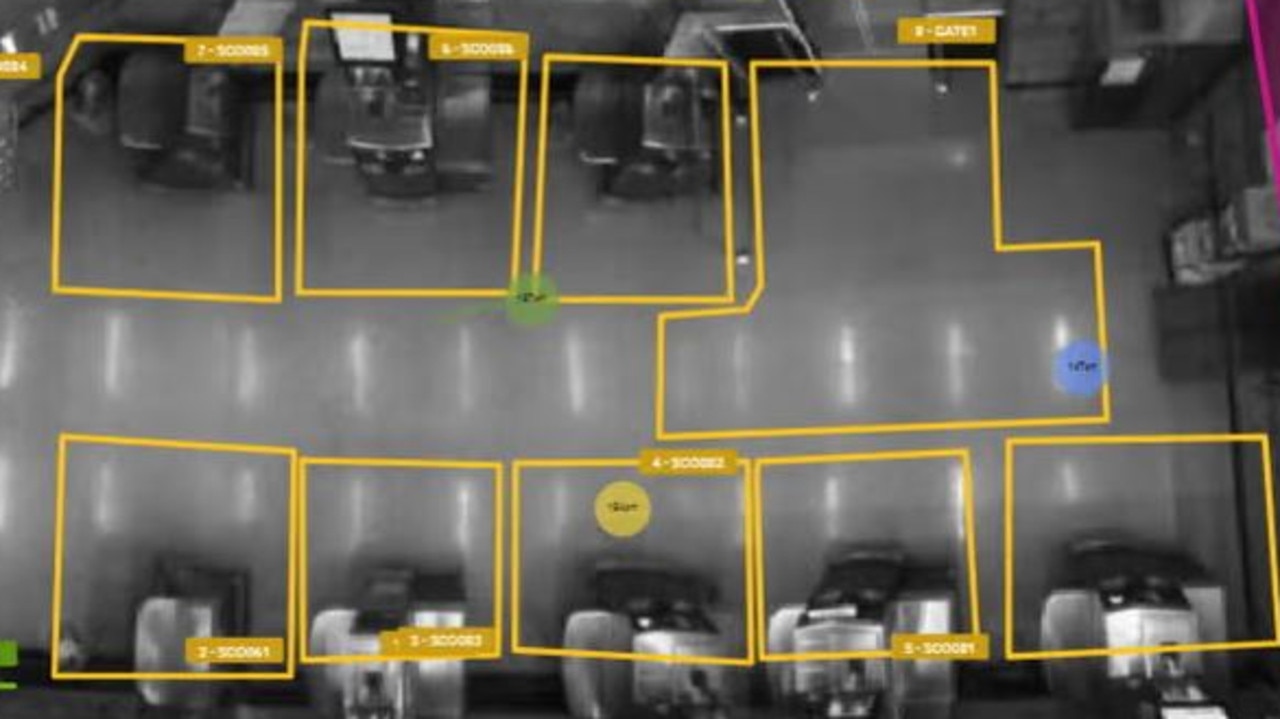
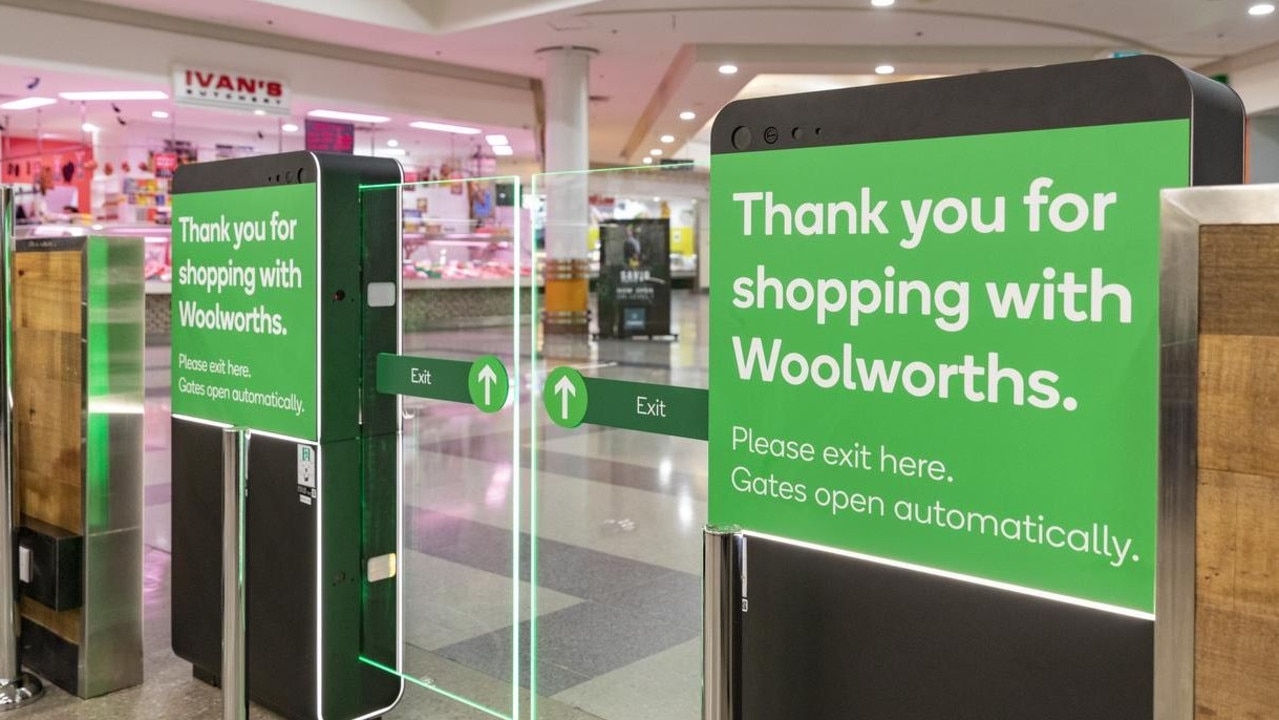
Woolworths also ramped up security – including the implementation of double gates on entry at stores to prevent people pushing shopping trolleys out the front, and $50 million “assisted scan” technology at self-check-outs that prompt customers if the system flags an incorrect scan, as well as enhanced camera monitoring. It is also trialling technology that will assign digital IDs to customers via sensors located in the roof.
In a results call earlier this year, Woolworths Group CEO Brad Banducci said the measures were “partly about theft, but it is partly about aggression towards our team”.
“We see that as more important than the theft issue. We have seen a rise in aggression,” Mr Banducci said.
While consumers have welcomed the efforts to protect supermarket staff, they have also expressed concern at the growing number of cameras in stores – with some deeming the relentless surveillance “completely unacceptable” on social media.
“Let’s think about why we are seeing increases in people shoplifting? Why are people being aggressive towards staff? People are struggling,” Australian Privacy Foundation vice-chair, Monique Mann, said previously.
“At the same time, Coles and Woolworths are recording massive (in excess of a billion dollars) profits amid a cost of living crisis. Maybe they should think about that and try to alleviate cost of living pressure rather than just expand surveillance and their profits,” Dr Mann said.
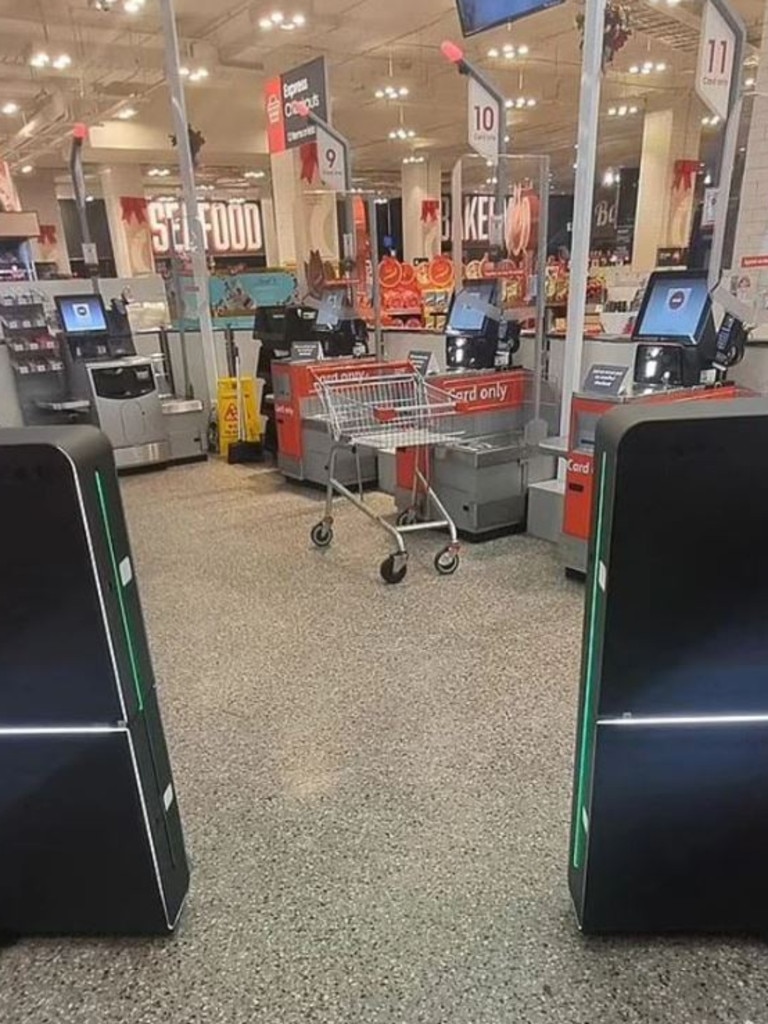
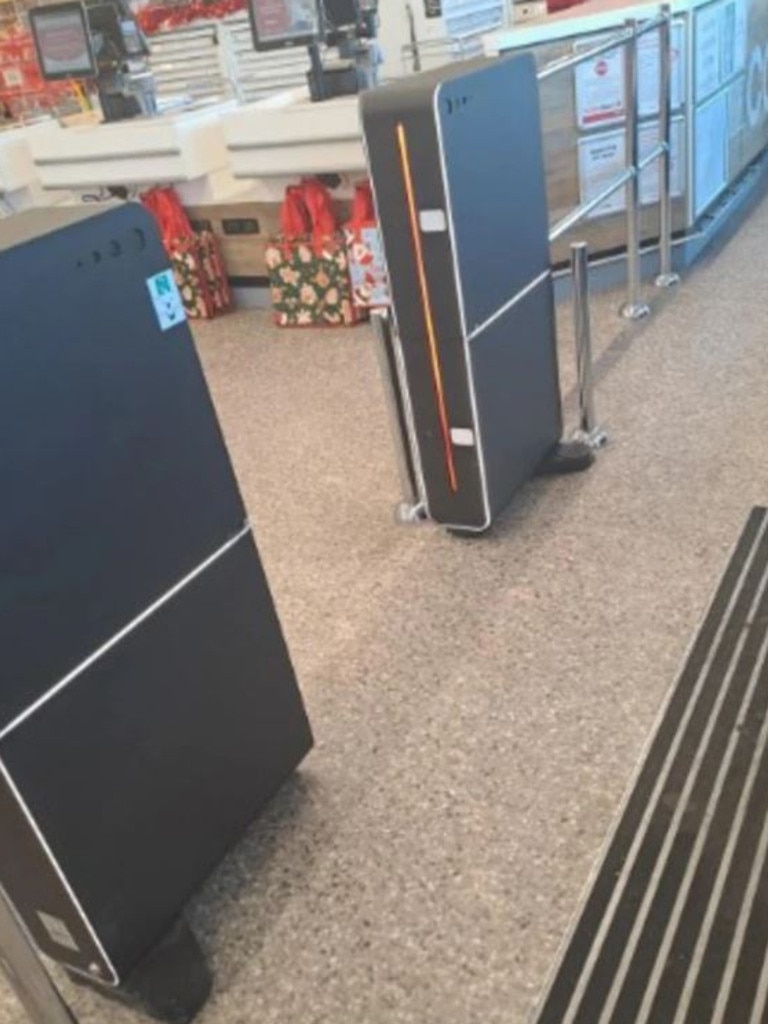
Associate Professor at the Queensland University of Technology’s Business School, Paula Dootson, predicts “retailers will continue to implement technology to address retail crime” in 2024, especially that which happens at the self-checkout.
“We will see retailers introduce everything from low-tech tools [like] mirrors, product cages, trolley locks, and CCTV to hi-tech tools [like] smart gates (traditional alarms; some gates shut if no payment [is] made), smart tags (in stickers: track it on exit, track origin if it is found); self-checkout cameras (of people as they checkout, of product as it is scanned), AI tracking biometrics in store, and AI tracking objects (products) as they move through the store,” Professor Dootson told news.com.au.
“The introduction or continued use of these tools will see retailers continue to navigate the right balance between loss prevention and ensuring a positive customer experience where the customer does not feel surveilled.”
Professor of Marketing at Sydney University’s Business School, Vince Mitchell, however, said the introduction of greater security measures “depends what the cause is, and the scale of it”.
“If it’s a reaction to the cost of living crisis, then this should ease when that goes away,” Professor Mitchell told news.com.au.
“This was always a potential risk with self-service that needed to be managed.
“It’s always easier to slacken security than to tighten it – so, ideally, these greater security measures would have had these measures in from the beginning so that people could get used to them.”






